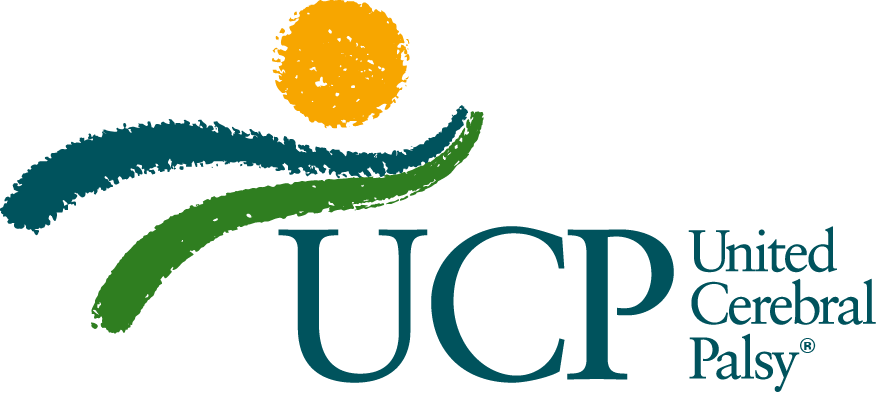Case for Inclusion Special Report Assesses Impact of COVID-19, Outlines Blueprint for More Sustainable Medicaid System
WASHINGTON, D.C. – A new report published today by the ANCOR Foundation and United Cerebral Palsy (UCP) illustrates the deepening impact of COVID-19 on Medicaid-funded providers of community-based services to people with intellectual and developmental disabilities (IDD) and finds that the pandemic is threatening the long-term sustainability of IDD services by exacerbating longstanding crises, such as a severe shortage of direct care workers.
The Case for Inclusion 2021 special report lays out steps that state Medicaid programs, the 117th Congress and the Biden administration should take to invest in the long-term sustainability of community-based disability supports as the nation continues down a slow road to recovery from the pandemic.
To date, the pandemic has wreaked havoc on the financial stability of provider organizations by triggering revenues to plummet and expenses to skyrocket.
On the revenue side, states’ stay-at-home and social distancing orders forced providers to shutter day programs—those that support people with IDD to work or engage in community life—depriving these programs of some or all of their revenue. On the expense side, the high costs of overtime necessitated by the need to support people in their homes 24 hours a day, as well as significant costs related to personal protective equipment (PPE), have led the average provider to spend an additional $77,514 per month since March 2020.
Today’s precarious financial situation is deepening vulnerabilities in the system that have burdened providers since long before the pandemic. Most notably, the Medicaid disability service system has long experienced significant shortages of direct support professionals (DSPs), with turnover rates hovering above 50 percent in some states and averaging 43 percent nationally. High turnover has largely been driven by low wages; the median hourly DSP wage is just $12 nationally and significantly lower in certain states.
Although providers have consistently acknowledged the need for higher DSP wages, their ability to offer higher wages is constrained by insufficient reimbursement rates in the Medicaid program. These inadequate rates also help to explain why at the start of the pandemic, the average provider organization had only enough cash on hand to sustain operations for one month in the event of a significant revenue disruption.
In response to these challenges, federal and state governments have adopted a range of policies that have alleviated the crisis—policies that the authors of the Case for Inclusion 2021 argue should be expanded or made permanent.
The Case for Inclusion 2021 finds that at the federal level, programs like the Paycheck Protection Program and the Provider Relief Fund—both initially authorized by Congress in the March 2020 CARES Act—have been essential to providers’ ability to stay afloat through the pandemic. However, these programs have not gone nearly far enough to meet the needs of providers and should be expanded to ensure that providers can continue offering critical supports to people with IDD during and after the public health emergency.
Meanwhile, at the state level, Medicaid programs have initiated a range of regulatory flexibilities that have enabled providers to meet the needs of this unprecedented moment and to operate more efficiently. For example, retainer payments (payments made by states to providers during temporary disruptions of service) and the ability to deliver virtual supports have been indispensable. The Case for Inclusion 2021 argues that regulatory flexibilities like these should be made permanent.
In addition to these existing programs, the Case for Inclusion 2021 recommends a range of federal actions designed to ensure that as we transition away from the pandemic, we don’t return to the broken system that existed prior to COVID-19. These actions span three critical areas:
- Addressing providers’ immediate needs as the COVID-19 pandemic persists. For example, the 117th Congress should adopt provisions initially introduced in the House in 2020 that would ensure providers have sufficient staffing, technology and training to deliver telehealth services and virtual supports.
- Supercharging the direct support workforce. For example, the Biden administration should attract qualified professionals to the direct support workforce by explicitly including DSPs in its rollout of the initiatives of the Biden-Harris campaign’s “100,000 Caregivers” proposal.
- Fostering innovations that empower providers to improve quality outcomes. For example, the Biden administration should direct the U.S. Department of Health & Human Services to encourage and fund pilot programs to test payment models that facilitate the delivery of better outcomes.
“The COVID-19 pandemic has proven that there’s virtually no occasion to which community providers won’t rise,” said Barbara Merrill, chief executive officer for ANCOR and the ANCOR Foundation. “But providers’ tenacity shouldn’t be the only resource that people with IDD can rely on when it comes to ensuring they have the opportunity to live and work in the community. Public policy at all levels of government must invest in the capacity of providers to keep people safe now and ensure they can continue to thrive in the community as this public health emergency subsides.”
Armando Contreras, president and chief executive officer for UCP, added: “The spread of COVID-19 has created extraordinary and distressing challenges for UCP affiliates to deliver high-quality services to people with disabilities in our communities. While service providers and caregivers over the past year have met these challenges head on, we cannot simply return to a system that undervalues the critical role these professionals play every day and in every corner of our country. As the nation recovers from the wave of death and trauma inflicted by the pandemic, people with disabilities must not be left behind.”
The Case for Inclusion 2021 report, including its full suite of policy recommendations and accompanying resources, can be downloaded at caseforinclusion.org.
###
About United Cerebral Palsy
United Cerebral Palsy educates, advocates and provides support services through an international network of affiliate organizations to ensure life without limits for people with disabilities. UCP has a mission to be the indispensable resource for individuals with cerebral palsy and other disabilities, their families and their communities. UCP’s 56 affiliates in the US and two in Canada provide services to about 155,000 children and adults on an annual basis—one person at a time, one family at a time. For more information, visit ucp.org.
About ANCOR & the ANCOR Foundation
For more than 50 years, the American Network of Community Options and Resources (ANCOR) has been a leading advocate for the critical role service providers play in enriching the lives of people with intellectual and developmental disabilities. As the 501(c)3 charitable arm of ANCOR, the ANCOR Foundation exists to expand the commitment and capacity of providers and communities dedicated to improving quality of life for people with disabilities. For more information, visit ancor.org.




